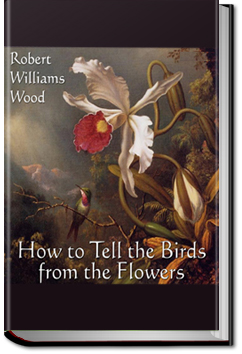


By other Nature books I'm sure,
You've often been misled,
You've tried a wall-flower to secure.
And "picked a hen" instead:
You've wondered what the egg-plants lay,
And why the chestnut's burred,
And if the hop-vine hops away,
It's perfectly absurd.
I hence submit for your inspection,
This very new and choice collection,
Of flowers on Storks, and Phlox of birds,
With some explanatory words.
Not every one is always able
To recognize a vegetable,
For some are guided by tradition,
While others use their intuition,
And even I make no pretense
Of having more than common sense.
Indeed these strange homologies
Are in most flornithologies,
And I have freely drawn upon
The works of Gray and Audubon,
Avoiding though the frequent blunders
Of those who study Na
Get ALL YOU CAN BOOKS absolutely FREE for 30 days. Download our FREE app and enjoy unlimited downloads of our entire library with no restrictions.
Have immediate access and unlimited downloads to over 200,000 books, courses, podcasts, and more with no restrictions.
Everything you download during your trial is yours to keep and enjoy for free, even if you cancel during the trial. Cancel Anytime. No risk. No obligations.
For just $24.99 per month, you can continue to have unlimited access to our entire library. To put that into perspective, most other services charge the same amount for just one book!

As avid readers, we understand the joy of immersing ourselves in a captivating story or getting lost in the pages of a good book. That's why we founded All You Can Books back in 2010, to create a platform where people can access an extensive library of quality content and discover new favorites.
Since our founding days, we’ve continuously added to our vast library and currently have over 200,000 titles, including ebooks, audiobooks, language learning courses, podcasts, bestseller summaries, travel books, and more! Our goal at All You Can Books is to ensure we have something for everyone.
Join our community of book lovers and explore the world of literature and beyond!